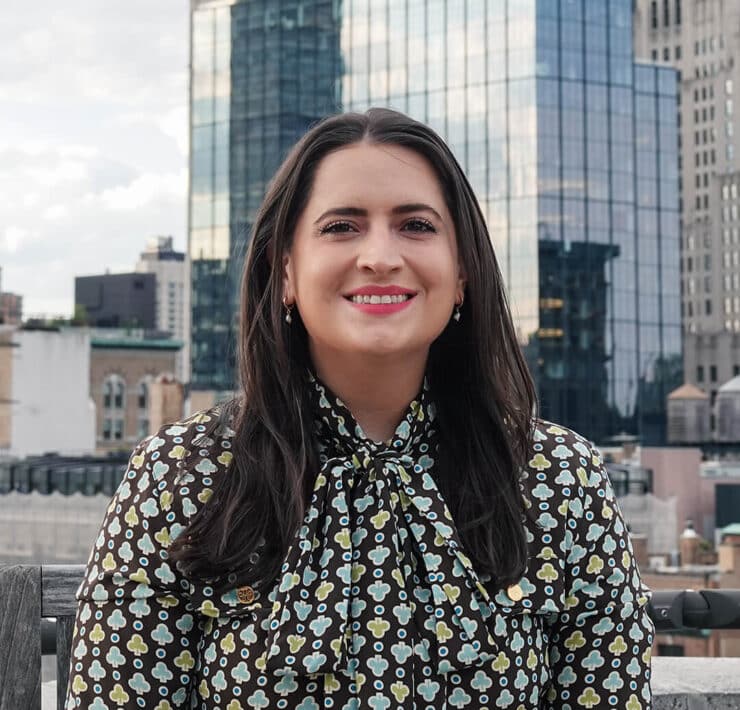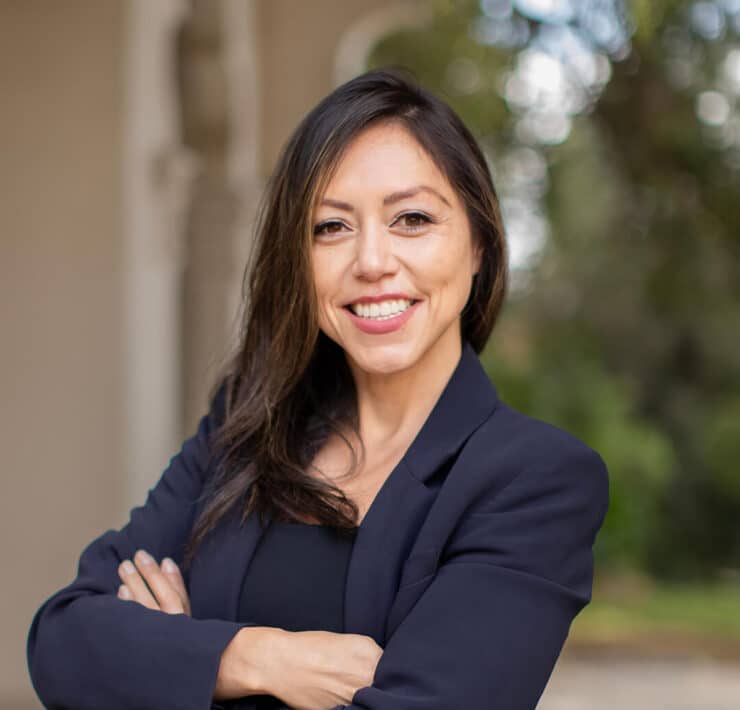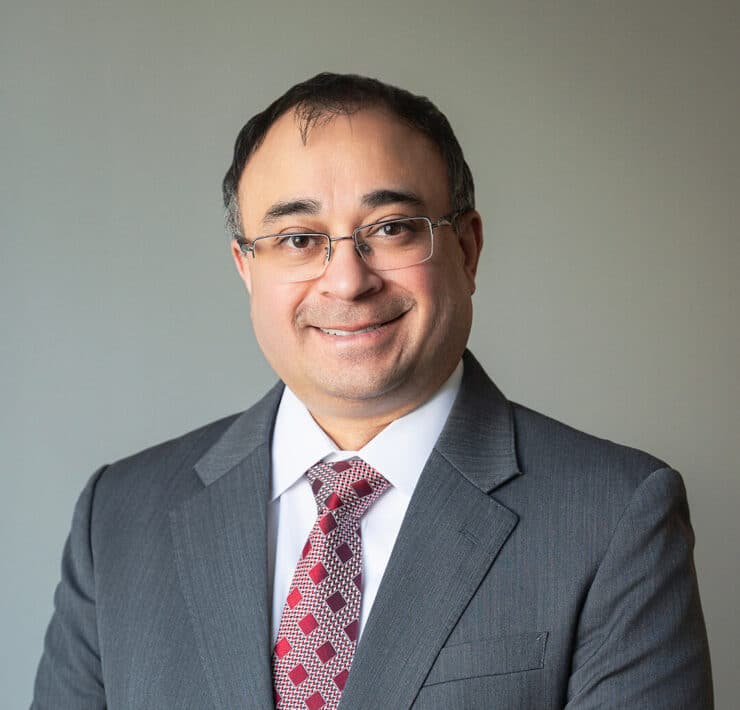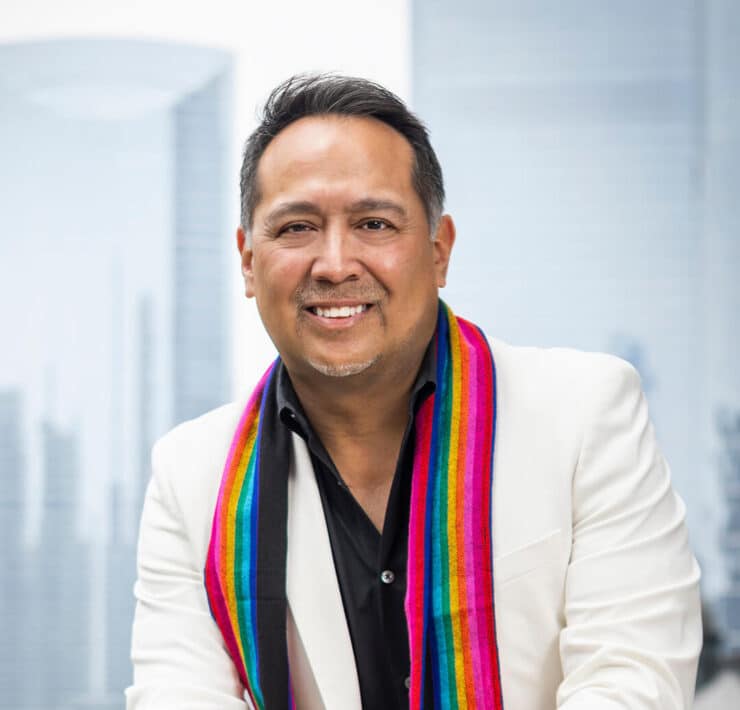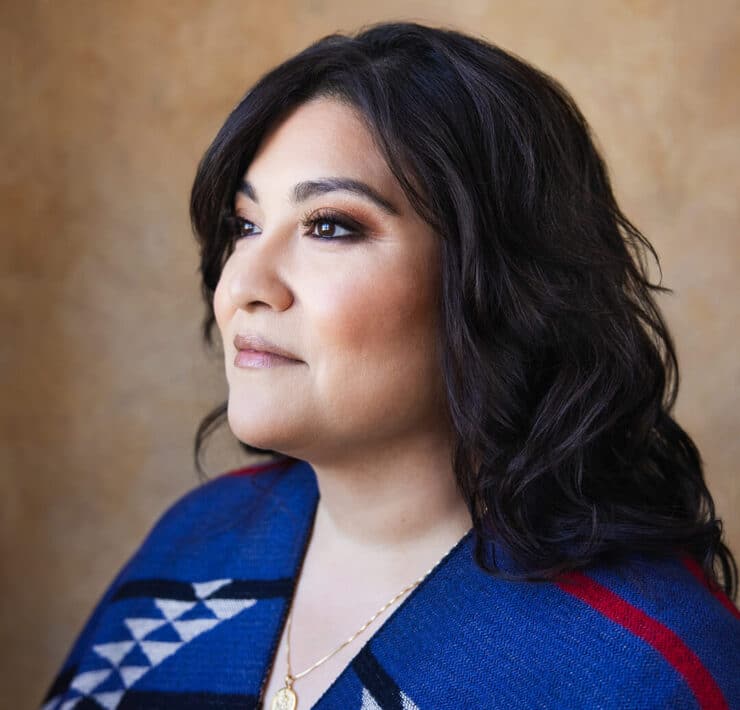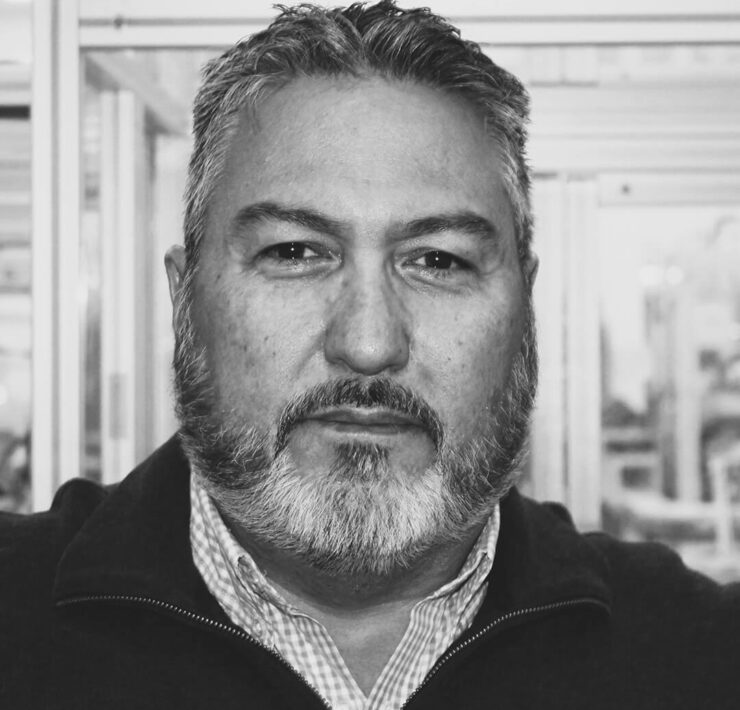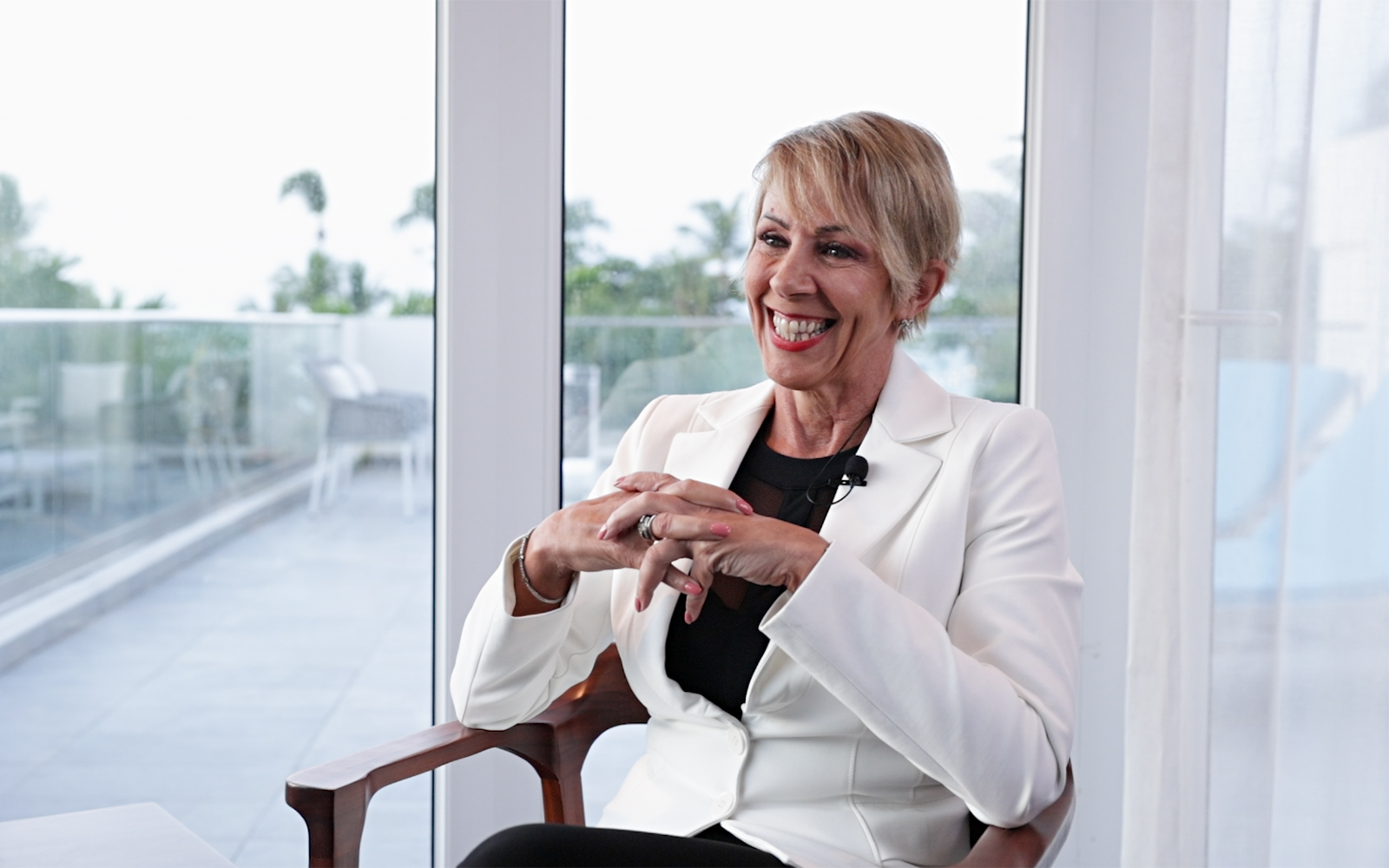
|
Getting your Trinity Audio player ready...
|
Throughout her nearly twenty-five-year career, Blanca Santos has built her expertise in the public, private, and nonprofit sectors and earned her PMP certification. In 2019, she joined the Bravo Family Foundation as its CEO and throughout her first four years, she’s leveraged her finance background to build entrepreneurship programs.
She notes that she’s structured, organized, and she pushes people to do things. But those traits aren’t the only ones that guide her leadership. “I was raised by a single mom because I lost my dad at nine years old,” Santos says. “That [has given me] the sensitivity that’s required to be a CEO for a foundation.”
In September 2023, the Hispanic Executive team flew to Puerto Rico to speak with foundation founder Orlando Bravo. During that trip, Santos sat down with Vianni Lubus, head of audience and engagement, to share the foundation’s mission of serving the community, the initiatives close to her heart, and how they are providing opportunities to the youth in Puerto Rico.
What has it been like to lead the Bravo Family Foundation and to operate it in Puerto Rico?
This foundation was established by our founder, Orlando Bravo, who is a successful businessman, and it was established in Puerto Rico. It operates in Puerto Rico, and it’s for Puerto Rico. So, I feel great doing it. I prefer working here, being the CEO of a foundation with the reputation that we have and reputation that Orlando has. It’s great working here and for our people. For me, that’s most important: that we work and we serve our people. Eventually, maybe we can take our programs to the States, but it has to be also a Hispanic environment and Hispanic community. But for now, I think we’ll stay here.
How does the Bravo Family Foundation ensure that its initiatives are effective and aligned with local needs? How does the foundation approach transparency, and how do you ensure that initiatives are effective and aligned with, again, local needs?
We have great staff. Professionally, they are excellent. They know very well what is our mission, [which] is to foster social justice for the most-needed people, mainly [underserved] communities and communities for youth. Our programs align with our mission, and we select the initiatives and the participants of our programs based on that. [We are an] organization that is completely transparent. We are a nonprofit, but we are of operational type. Our funds don’t go to the people. We don’t do donations. We don’t fund directly [to] the person. We do everything through our programs.
An example is Hurricane Fiona, [which] hit us last year. We developed immediately an initiative for Hurricane Fiona relief. And we were conscious that the government has limited funds and the United States funds takes a while. So the first thing that we did was to be clear with our lawyers, [who] said to us that they do all the valuation and they told us, “Yes, you can do it this way.”
We had a complete document with the requirements of the people that needed what we were going to do. [As] Puerto Ricans, we are humble; we just go out and give whatever we have to our people. I knew that that was going to be fast. What I knew it would take a little bit longer was offering them the appliances and furniture because we had a lot of flooding here in Puerto Rico with this hurricane.
We acted immediately. I remember that Orlando was the first one that called me [asking] what we’re going to do, and he assigned funds for that. So we went out—each and every one of us, including me and community leaders and volunteers—house to house, do inventory, and see if that family needed the appliances and the furniture. Again, I wasn’t going to assign people that I didn’t know nor give money to any other organization. There were a few of the community leaders and of our staff that did all of this research. And then they sent it to one of my resources, and she did all the evaluation that all was correct.
She sent it to me, and I gave the final approval. We purchased all these appliances and furniture to a local furniture store also because we want to help our [local businesses].
I’d love to hear about any other specific initiatives undertaken by the Bravo Family Foundation that holds a special significance for you. For you, is there something that’s made a notable impact on your local community?
I need to say that I love all of them because that’s my passion. So that definitely I cannot select, even though I have one in my heart: Empowering Young Entrepreneurs. I’m always thinking that our youth have a potential, great potential, but they don’t have much opportunities. [Ages fourteen to seventeen] is where we need to prepare them and change their mindset because they usually, again, are in underserved communities. They usually think entrepreneurship is not for them. That’s for older people, for rich people. No, we need to change that mindset.
That program began in 2021, a pilot with thirty students in one site. Today we have more than two hundred students in three different sites. And it’s amazing hearing them, how they talk about the program, because we do not only offer the concept of entrepreneurship, but we also offer them other tools that they can use. For example, there’s a tool that they fill out and it can tell them where their strength, which profession, their self-esteem, and how to talk in public, because they do presentation to judges and to Orlando during what we call it Bravo Day.
And it’s amazing hearing them. I hear them at the beginning and then hearing them at the end, completely different. And the group that began that first year, during 2021, they remain with us still. This is their last year. But that’s a program that I think that [offers them] that opportunity. I know that they can work with their lives and also contribute to Puerto Rico, to Puerto Rico’s economic development.
Can you shed light on the issues facing Puerto Rico’s young people and what do you hope for their future?
Well, you know that we have here problem of poverty. We have a 40.5 percent of poverty in Puerto Rico, and one of the problems that we have that the youth doesn’t have the opportunity of good education. Our system is a little bit deficient, and we need to offer opportunities to them. So that’s the main problem that we have here in Puerto Rico, and it’s one of our main goals to give opportunity to the youngest.
Have you been able to integrate elements of Puerto Rico’s rich local culture or heritage into any one of the foundation’s initiatives? And if so, how has that added value to your work?
We have added that component to the Exceptional Community Leaders program. We help them develop an enterprise, a social enterprise. That has been a little bit challenging because we select always a community based nonprofit organizations, and they are so used to receiving funds that at the beginning they said, “How are we going to do a social enterprise?” But they [caught on] fast.
We developed a program for them called Heritage and Cultural Tourism. We have three organizations that launched recently and what we did is we supported them, we helped them to develop the content of that experience that the visitor will have. So, they learned about their own communities. And when I say they, I’m saying young people also there’s one leader that’s the exceptional leader, but that leader has then a group of young people from ages twelve to twenty, twenty-four, twenty-six.
So our programs are all for the young and definitely that’s an important part of our work. We want them to develop their social enterprise, but that the visitors and even the youth learn about their own culture.
This interview was edited for length and clarity.



